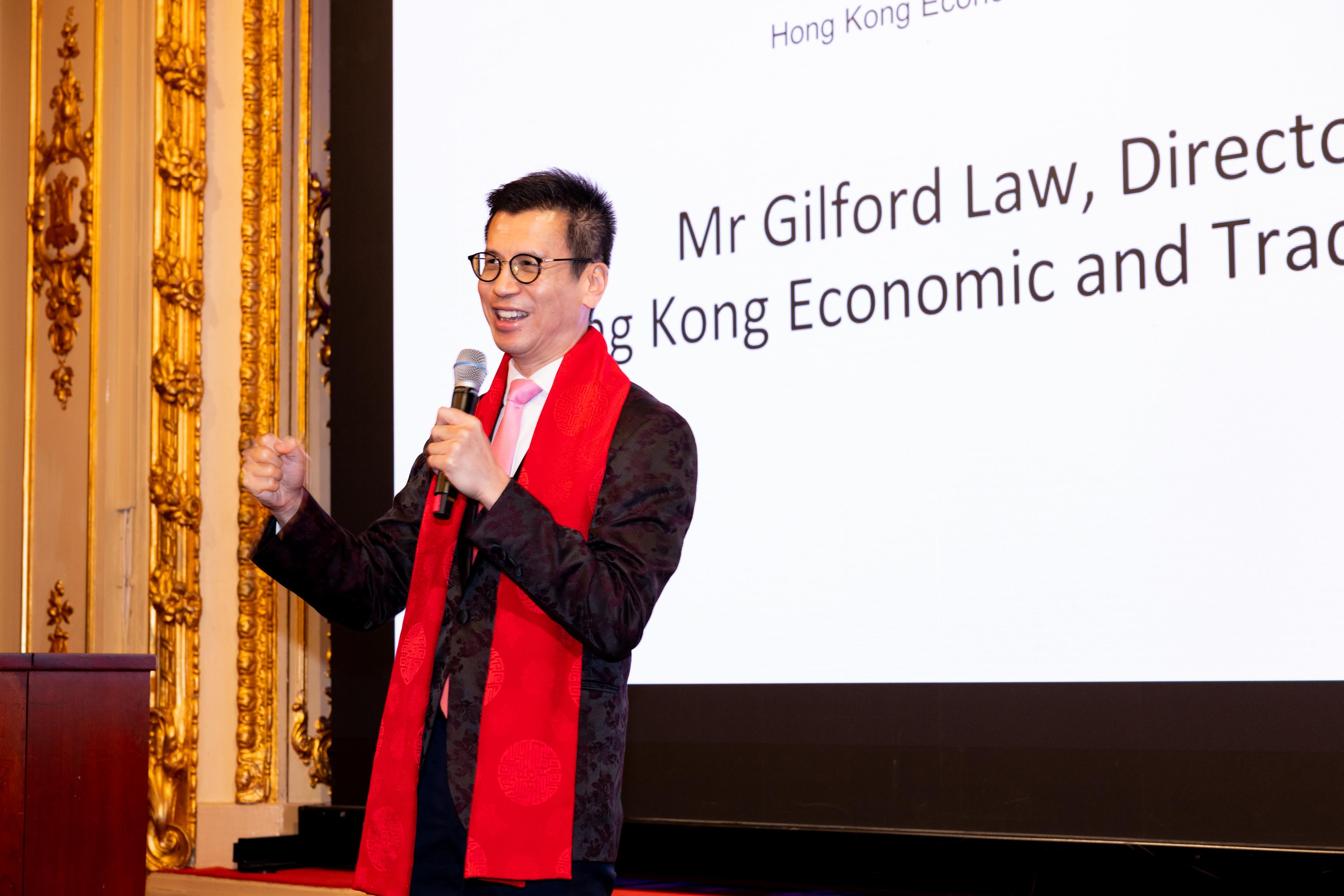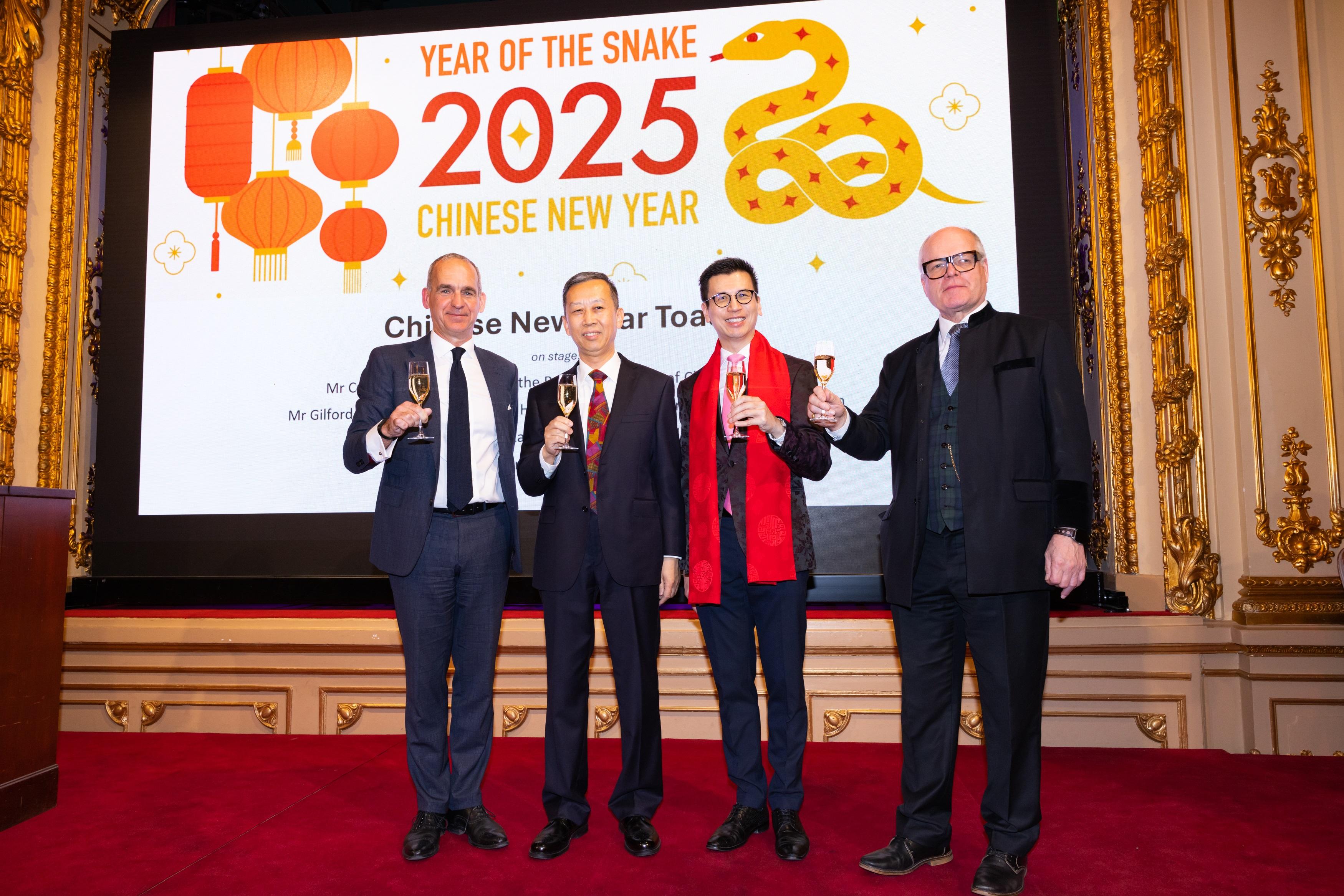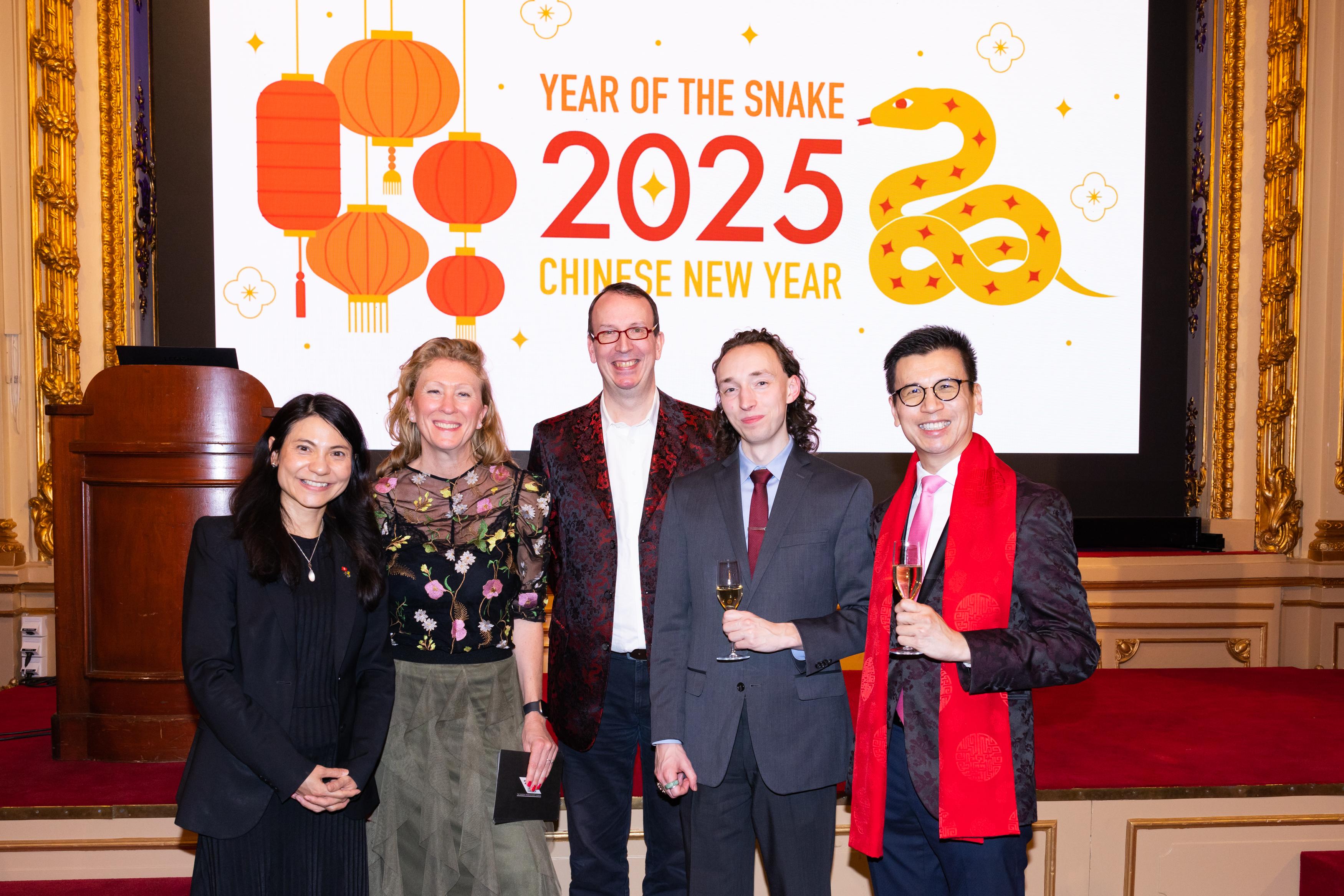London ETO greets Year of Snake in Sweden (with photos)
The Hong Kong Economic and Trade Office, London (London ETO) and the Hong Kong Chamber of Commerce in Sweden co-hosted a Year of the Snake reception in Stockholm, Sweden, on January 14 (Stockholm time).
The evening began with a business seminar, featuring five speakers from the Swedish business community who shared opportunities in Hong Kong for investment and career development. In his welcome speech, the Director-General of the London ETO, Mr Gilford Law, highlighted Hong Kong’s unique advantages, including a free and open investment environment, a simple and low tax system, modern infrastructure, logistics networks, and the unfettered flow of information, capital, goods and talent.
Mr Law added, “Our strengths have gained well-deserved recognition. Hong Kong is the world’s 10th-largest merchandise trading entity and the fourth-largest destination for foreign direct investment. Canada’s Fraser Institute, in its 2024 Economic Freedom of the World Report, ranked Hong Kong the world’s freest economy. We also topped the Report’s ‘Freedom to trade internationally’. Hong Kong will continue to play a distinctive role as a ‘super connector’ and ‘super value-adder’.”
The reception was well attended by over 200 guests from the local business, academic and cultural sectors, as well as the Chinese community. The London ETO will continue to celebrate the Year of the Snake among the countries under its purview.






